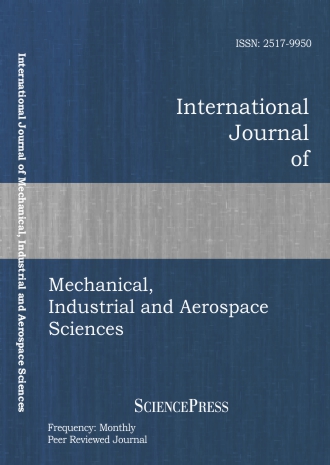
Scholarly
Volume:9, Issue: 11, 2015 Page No: 1973 - 1978
International Journal of Mechanical, Industrial and Aerospace Sciences
ISSN: 2517-9950
1108 Downloads
Numerical Analysis of Roughness Effect on Mini and Microchannels: Hydrodynamics and Heat Transfer
A three-dimensional numerical simulation of flow through mini and microchannels with designed roughness is conducted here. The effect of the roughness height (surface roughness), geometry, Reynolds number on the friction factor, and Nusselt number is investigated. The study is carried out by employing CFD software, CFX. Our work focuses on a water flow inside a circular mini-channel of 1 mm and microchannels of 500 and 100 m in diameter. The speed entry varies from 0.1 m/s to 20 m/s. The general trend can be observed that bigger sizes of roughness element lead to higher flow resistance. It is found that the friction factor increases in a nonlinear fashion with the increase in obstruction height. Particularly, the effect of roughness can no longer be ignored at relative roughness height higher than 3%. A significant increase in Poiseuille number is detected for all configurations considered. The same observation can be done for Nusselt number. The transition zone between laminar and turbulent flow depends on the channel diameter.
Authors:
Keywords:
References:
[1] P. Gao, S. Le Person, M. Favre-Marinet, “Scale effects on